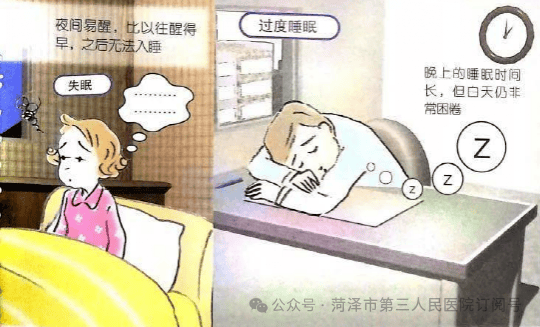In clinical practice, when patients with mental illness show signs of improvement or recover at home, their family members often worry about a relapse or worsening of the condition. In fact, the early symptoms of relapse for each patient with mental illness are different and require careful observation by family members to detect. So, how can you promptly identify the early symptoms of patients and intervene or treat them early? Follow the experts from Heze Third People’s Hospital’s Psychiatry Department to find out.
1. Sleep disturbances, such as difficulty falling asleep, early awakening, reduced sleep, and frequent nightmares.
2. Behavioral changes and alterations in daily habits. Lethargy, lack of hygiene, or excessive cleanliness, repeated bathing, changing clothes, etc.; staring blankly, sitting silently for long periods or being unusually talkative, fidgety; nosy behavior, increased smoking, refusal to take medication, etc.
3. Emotional instability, depressive or manic moods. Individuals who are normally mild-mannered suddenly become irritable, easily angered, or sociable and outgoing individuals become quiet and withdrawn, avoiding social interactions, while reserved individuals become excited, talkative, etc.
4. Lack of concentration, inability to complete tasks without constant reminders from others.
5. Fragmented hallucinations, delusions, or experiences of being controlled, increased sensitivity and suspicion, believing others are talking about them, etc.
6. Headaches, fatigue, palpitations, significantly decreased or increased appetite, changes in menstrual cycles in females, etc.
When these symptoms occur, family members should promptly take the patient to a specialized mental health facility for reevaluation, follow medication or psychological interventions under the guidance of professional doctors, reduce the frequency of relapses, alleviate the financial and emotional burden on the family, and facilitate the patient’s early recovery of social function.
Contributor: Ding Donghong
Editor: Hao Jinjin


